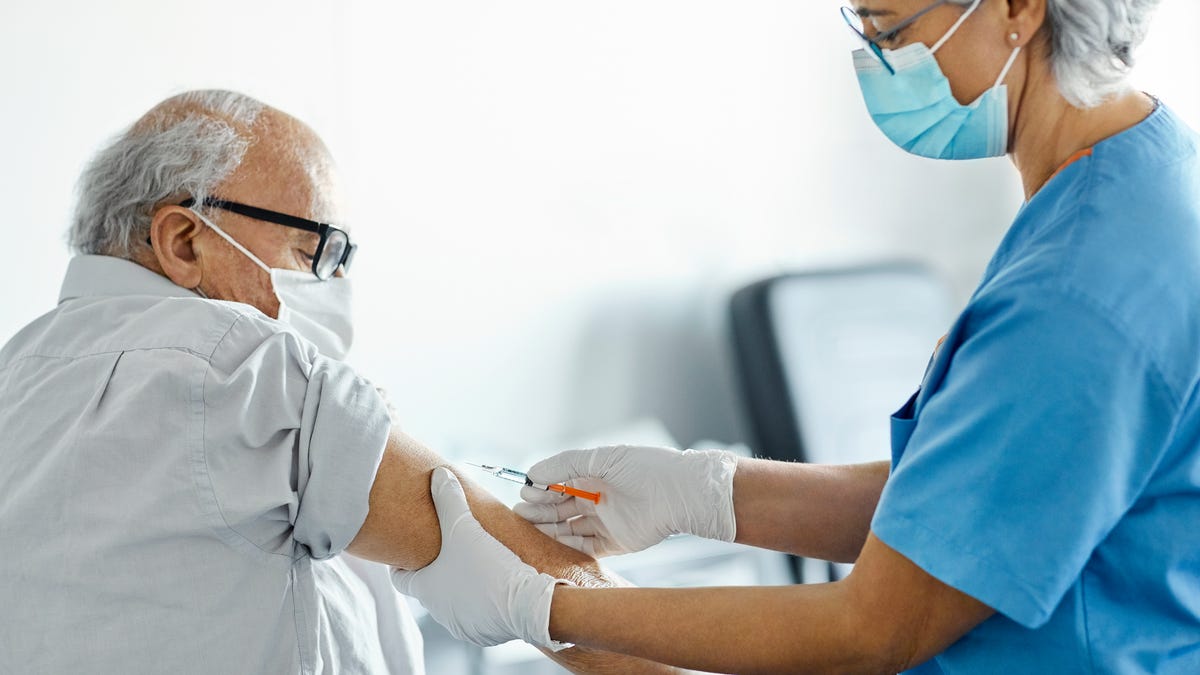CDC issues new guidance, says immunocompromised people can get 4th shot
Some people needed a third COVID vaccine earlier in the pandemic. Six months after their third shot, they'll be eligible for a booster too.

If you're immunocompromised and already received a third dose of Pfizer or Moderna, you may now get another booster or fourth dose of COVID-19 vaccine at least six months after your third shot, according to the US Centers for Disease Control and Prevention.
If you're immunocompromised and originally got Johnson & Johnson's vaccine, you should get a second shot at least two months after your single dose, the CDC says.
According to new CDC guidance for adults eligible for COVID-19 boosters, people who are "moderately or severely" immunocompromised and age 18 or older may get a booster of any of the three coronavirus vaccines available in the US – Pfizer, Moderna or Johnson & Johnson.
However, given that the official recommendation for immunocompromised folks to get a third dose of mRNA vaccine wasn't made until late summer, and the waiting period for people who received Pfizer or Moderna is six months after the third shot, this may not apply to many people for a few more months.
People who are considered moderately or severely immunocompromised by the CDC include the following:
- People receiving treatment for tumors or cancer in the blood
- Organ transplant patients taking medication that suppresses the immune system
- People who had a stem cell transplant within the last two years
- Folks with moderate or severe primary immunodeficiency syndromes
- People living with advanced or untreated HIV
- Anyone receiving treatment with high-dose corticosteroids that may suppress the immune system
If you're unsure whether you qualify, talk with your doctor.
People who are immunocompromised and who originally received Moderna's or Pfizer's COVID-19 vaccines for the first two doses were recommended to get a third dose months ago by the CDC, at least 28 days after their second dose, because research shows they are likely not as protected by COVID-19 vaccines as other adults.
Johnson & Johnson recipients who are immunocompromised weren't eligible for another dose earlier in the pandemic because of a lack of data, but now the CDC says they should receive a booster or second dose of any COVID-19 vaccine two months after their initial shot. Early data on a heterologous booster, or "mixing and matching" for COVID-19 vaccines, shows that people who originally received J&J have a higher antibody response to the mRNA vaccines than to Johnson & Johnson's booster, though that's not the full picture of immunity.
Moderna's booster is a half-dose of its vaccine, while Pfizer's and Johnson & Johnson's boosters are the same dose as their original series. If you're unsure which booster to receive, talk with your doctor.

